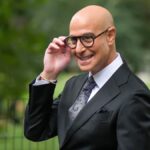Table of Contents
ToggleEvolution of Men's Wellness Culture
Historically, self-care has been associated primarily with women, often depicted through mothers participating in aerobics or influencers promoting green smoothies. Dieting was predominantly viewed as a female concern, while discussions around alcohol consumption were more common among men. However, this perception is shifting.
According to the Global Wellness Institute, the wellness economy is projected to reach $5.6 trillion worldwide in 2023, with estimates showing it could rise to nearly $8 trillion by 2028. This growth has prompted the industry to explore new market segments, particularly targeting men. To appeal to this demographic, the language around wellness has evolved, with terms such as “self-care” now referred to as “biohacking” and “meditation” rebranded as “cognitive enhancement.”
Shifting Aesthetics and Practices
The industry has moved from traditional spa experiences to more intense wellness practices, replacing leisurely activities with ice baths and high-protein diets. Gyms are now equipped with advanced technology, such as fitness trackers and calorie counters, transforming wellness into a competitive arena focused on optimization rather than relaxation. This marketing approach emphasizes control and achievement, resonating with traditional male values.
Sociologist Emily Contois, author of Diners, Dudes, and Diets, points out that this shift in wellness culture is driven by clear marketing strategies aimed at men. While growing awareness among men regarding diet and physical health is beneficial, it raises concerns about recreating harmful aspects of the diet culture that previously impacted women.
Registered dietitian-nutritionist Daniel Ursúa echoes these sentiments, emphasizing that both detox smoothies and the paleo diet can be exploited to profit from insecurities, lacking robust biological justification. Experts suggest that worrying about weight and adhering to restrictive diets is harmful regardless of gender. Improper changes in diet can lead to significant health issues in both the short and long term.
Cultural Influences on Men's Wellness
Contois examines the broader cultural context affecting men's body images, citing increasing pressures to conform to specific ideals. The rise of superhero films has significantly influenced perceptions of male attractiveness, pushing the narrative of hyper-masculinity. Actors portraying these characters often share their intense training regimes, leading many men to believe in the possibility of achieving similar physiques quickly. Performance-enhancing drugs have further compounded this issue.
Social media plays a crucial role in shaping men's body perceptions. A study from the University of Toronto links constant exposure to muscular physiques with body dysmorphia and low self-esteem among men. Contois notes the pervasive nature of this content online, which influences men's thoughts about their own bodies and feeding into societal norms regarding masculinity.
The Emergence of Male Wellness Influencers
In recent years, a wave of male wellness influencers has emerged, appealing to men interested in enhancing various aspects of their lives, such as work and health. This genre, often referred to as “bro science,” combines fitness, productivity hacks, and lifestyle improvements.
Andrew Huberman, a neurobiology professor at Stanford, has gained immense popularity through his podcast, the Huberman Lab, amassing over 140 million views on YouTube. His approach merges anecdotal advice with scientific language, advocating for lifestyle changes and supplements. Huberman endorses unconventional practices, such as cold water immersion for concentration and specific breathing techniques.
Other well-known figures, like Joe Rogan and Tim Ferriss, discuss various wellness topics, while figures like Liver King promote extreme dietary choices. Their messages often intertwine personal wellness with discussions around politics and societal expectations.
A Broader Discussion on Masculinity
While many influencers represent the more extreme side of wellness culture, a more positive narrative is emerging. Men are increasingly open to discussing mental health, skincare, and other topics that were once considered taboo, thus broadening the conversation about masculinity.
This newfound interest in wellness practices can also serve as a means to address deeper fears, such as the anxiety surrounding mortality. The trend of sharing experiences related to body image reflects a growing awareness among men, who have traditionally struggled to vocalize concerns similar to those commonly expressed by women.












